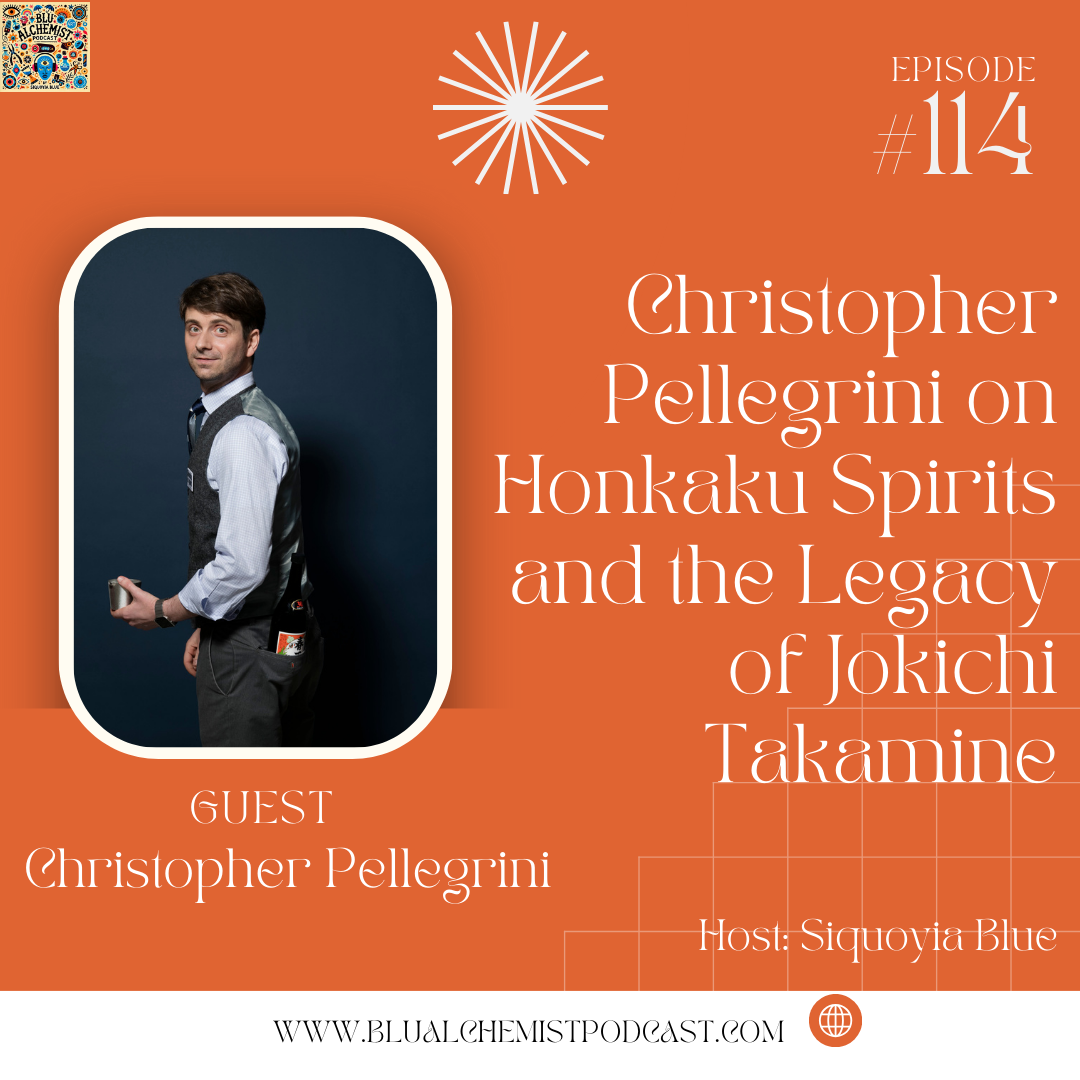The Undiscovered Legacy of Jokichi Takamine: Whiskey, Chemistry, and Cultural Bridging

The Undiscovered Legacy of Jokichi Takamine: Whiskey, Chemistry, and Cultural Bridging
Unveiling a Visionary's Journey
In this riveting episode of the Blu Alchemist Podcast, Siquoyia Blue sits down with Christopher Pellegrini to unfold the intriguing story of Jokichi Takamine, a man whose name may not ring a bell for many but whose innovations and achievements resonate profoundly in the realms of chemistry and culture. Living at the intersection of two vibrant worlds, Takamine's legacy remains an untapped reservoir of inspiration and innovation, contributing invaluable lessons for today's audience.
The Rise of the "Japanese Rockefeller"
Jokichi Takamine often hailed as the "Japanese Rockefeller," rose to prominence in 1906 thanks to his work being licensed to the pharmaceutical company Park Davis. This licensing deal catapulted him into immense wealth, comparable to a billionaire in today's terms. Despite his towering success, Takamine was subjected to racial discrimination—a tragic reality of his time—that restricted his access to elite gentleman's clubs. Rather than allowing this to hinder his social engagement, Takamine responded with resilience by establishing the Nippon Club in New York. This club soon became a haven for foreign dignitaries, fostering international dialogue and camaraderie.
A Cultural Ambassador
Takamine was more than an inventor; he was a bridge between cultures. Acting as an informal ambassador for Japan, he quietly funded the donation of cherry trees to Washington, D.C., an act that continues to symbolize U.S.-Japan friendship. His contributions didn't stop at cultural exchanges. He played significant roles in both Japan and the U.S., making monumental strides in pharmacology—most notably by isolating medical adrenaline, paving the way for life-saving treatments like the EpiPen.
Reviving Takamine's Whiskey Legacy
In collaboration with Shinozaki Distillery and the Takamine family trust, Christopher Pellegrini revived Takamine's forgotten whiskey legacy. This partnership marks the first time the family allowed the use of Takamine's name and likeness for a commercial venture, provided they receive reports and whiskey samples. This effort underscores Pellegrini's commitment to authenticity and honoring Takamine's storied history. The resulting product, Takamine Whiskey, is a tribute to a pioneer who began brewing whiskey with Koji fermentation—an innovative method employing a fungal mold from Japan instead of traditional malted grains. This groundbreaking technique added a unique umami flavor and increased alcohol yield, though it met fierce resistance from the established whiskey producers of the time.
The Trials and Triumphs of Innovation
Takamine's whiskey journey wasn't without adversity. His pioneering method threatened the interests of the Illinois Whiskey Trust, which saw the potential to cut production costs by 20%. Takamine faced severe repercussions, almost losing his life and watching his lab burn down, an act likely orchestrated by malt producers. Despite starting Koji whiskey production in 1894, the Sherman Antitrust Act in 1895 led to the dismantling of the trust and the abrupt end of his whiskey endeavors.
The Gentle Art of Adaptation
Christopher Pellegrini's experiences living in Japan for 22 years serve as a testament to the necessity of cultural adaptation. His deep dives into Kyushu's multi-generational distilleries and his firsthand understanding of Japan's business dynamics illustrate the complexities of navigating foreign environments. Pellegrini's reverence for shochu and Awamori—spirits outselling sake in Japan and produced using traditional, low-calorie, additive-free methods—mirrors Takamine's innovative spirit. His transition from academia to entrepreneurship reveals the humbling, fast-paced world of business, requiring substantial emotional intelligence and resilience.
Bridging Gaps: A Dual Perspective
The conversation between Siquoyia Blue and Pellegrini extends beyond historical accounts, delving into modern challenges in business and cultural diplomacy. Pellegrini's insights into the contrasting communication styles between Japan and the U.S. highlight the American penchant for last-minute changes and the Japanese emphasis on consensus-building. This dual perspective magnifies the subtleties of managing cross-cultural business operations, from hiring challenges to respecting (or navigating around) cultural hierarchies.
A Future Full of Possibilities
The episode concludes on an inspiring note, encouraging listeners to maintain an optimistic outlook, embrace new possibilities, and dive into uncharted territories. Siquoyia shares her ambition to introduce new products, reflecting the broader theme of innovation and perseverance threaded through the episode. Meanwhile, Pellegrini urges the audience to remain open to the magic of opportunities, reinforcing the narrative of continuous discovery and growth.
In retelling the story of Jokichi Takamine, Christopher Pellegrini not only revives the legacy of a forgotten hero but also provides a roadmap for future innovators, blending historical wisdom with modern insights. As listeners digest this rich narrative, they're invited to reflect, explore, and perhaps, like Takamine, forge their own path—immortalizing their contributions in the cultural and scientific annals of history.







